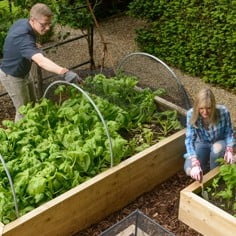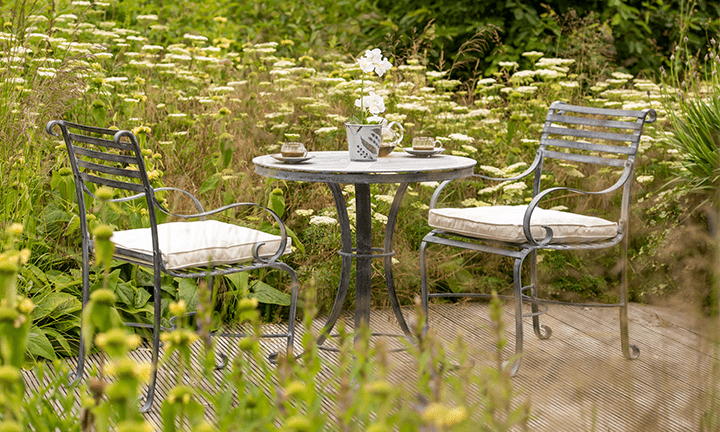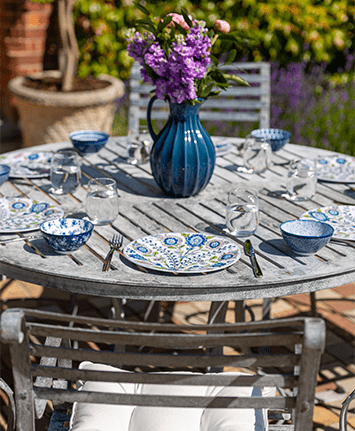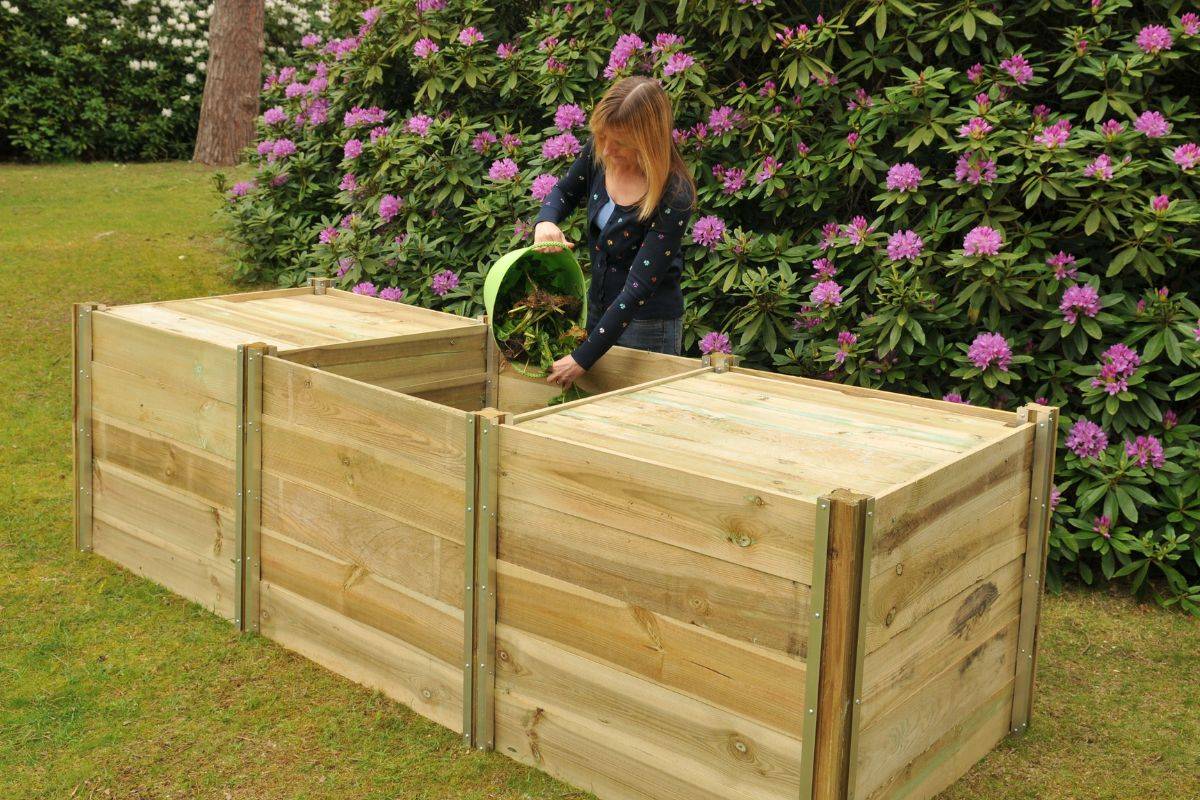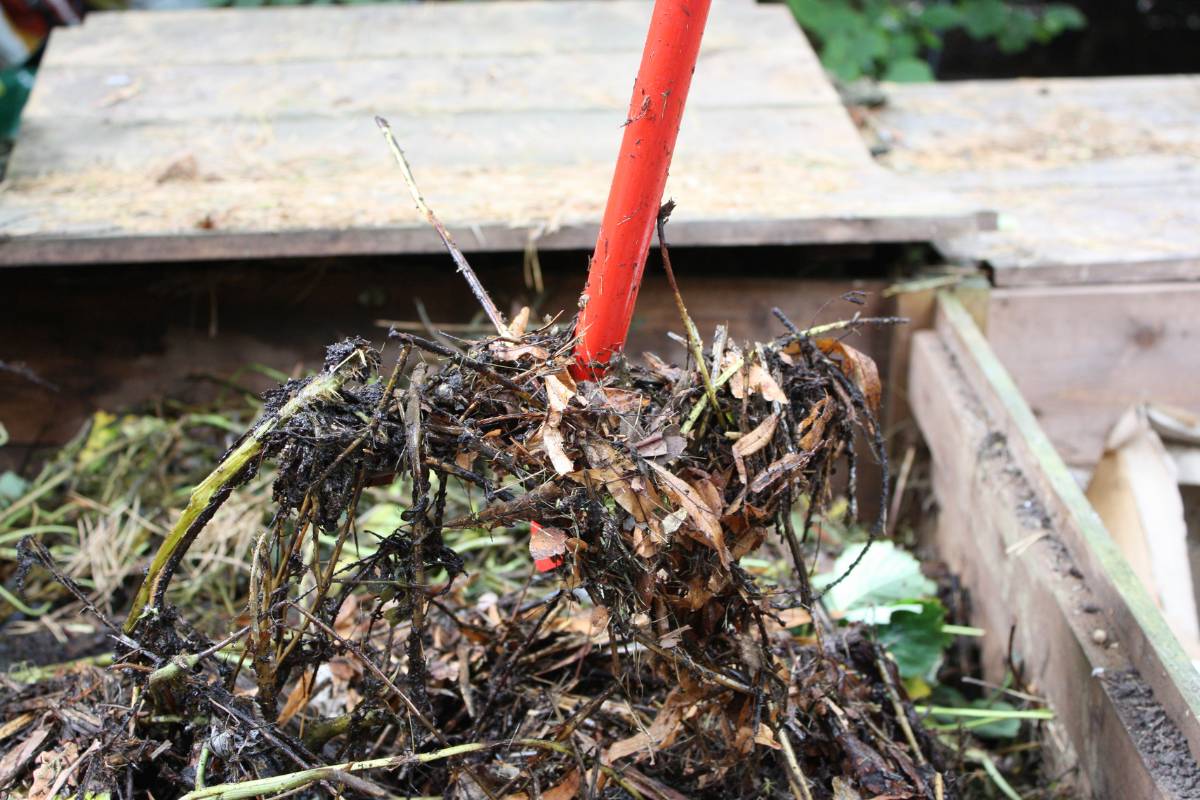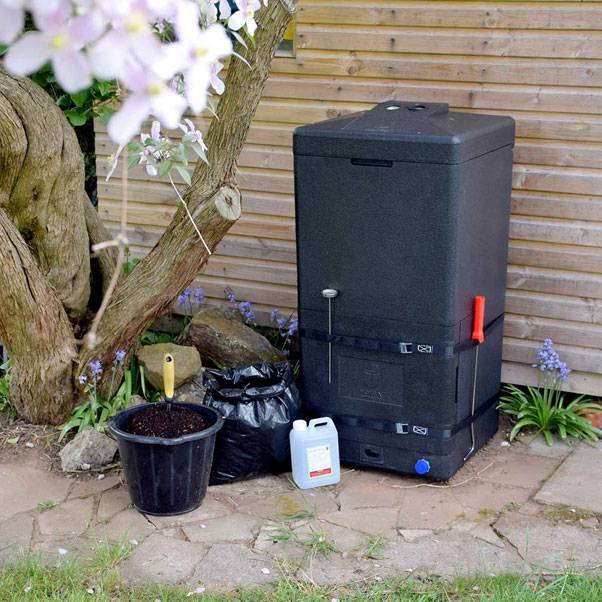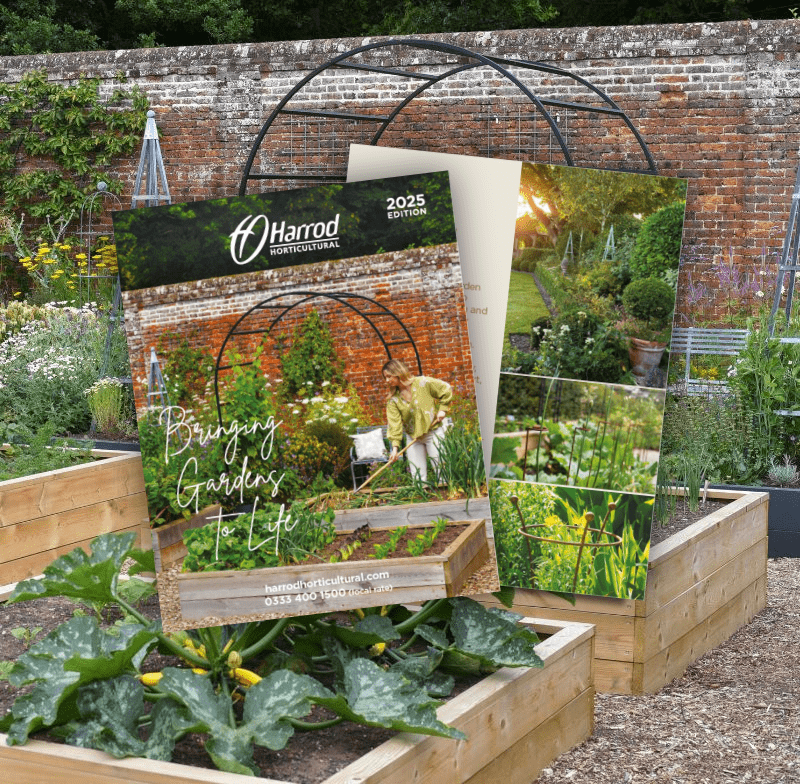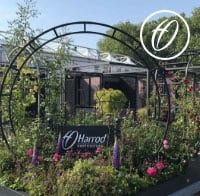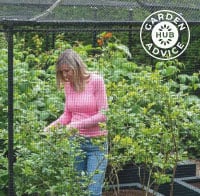Ants in the Compost Heap - and the Lawn!
I am using the composter but have 2 problems, which I hope you can help me with.
1. Does Garotta exist any more? I remember using it years ago but can't find it anywhere now. Any suggestions for a substitute?
2. How to get rid of ants? The composter is full of them.What do I use that will not contaminate the compost? Loads in the garden too, nasty red ones.
Help!
Janet

Many thanks for your recent enquiry regarding the availability of ‘Garotta’ and the presence of ants in your compost heap. I have answers to both questions for you!
To the best of my knowledge, Garotta is a compost maker – or accelerator – from the J Arthur Bowers range which is made by Sinclair Horticulture. It’s not a product we’ve ever stocked but should be on the shelves of any good garden centre or DIY store which takes gardening seriously. I’ve never been a real advocate of compost makers or accelerators as during my Master Composter training, and based on experience gathered both before and after the course, it has become apparent that if you add the correct materials to your compost heap then accelerators are an unnecessary expense. It’s true you might get some results but, as I said, if you construct your heap properly in the first place these will be negligible!
Ants in the compost bin is often a indication that the heap is too dry and contains too much ‘brown’ material such as sticks, twigs, straw and cardboard. I should imagine that the decomposition process is painfully slow as well, but the answer is relatively simple; add some moisture! I’d recommend you try and balance up the ratio of green to brown material you add to the heap – you want to aim to achieve 50:50 – by introducing ‘green’ material such as grass cuttings, weeds and vegetable peelings. You can also pour water onto the matter – nettles or comfrey left to stew in water are ideal – or leave the lid off to allow rain to enter.
The average garden compost bin supports an extremely complex eco-system and as such, I’d certainly advise against adding any form of pesticide for any creatures as it’s very easy to upset this delicate balance – and as ants will not want to nest or live in an active, well balanced heap your problems should be over!
As for the ants in your garden, the usual advice we offer is to leave well alone, unless of course they become a problem in the house which is not really our area! However, there are numerous – and interesting - techniques listed below which you may wish to try. Please bear in mind that colonies can consist of up to 300 ants so repeated treatments may be required and the queen can survive for up to 15 years, and after her demise the colony will die out. The following methods can be used to help control the ants;
• Mixing boric acid, toxic to ants, with icing sugar makes up a bait which will be taken back to the nest where it should destroy the colony
• Encourage natural predators, such as slow worms and toads, into the garden
• Douse the nest with cold water – boiling water will not do the lawn any favours
• As a last resort, control the ants by chemical means – please check at the local garden centre for the best type of insecticide, but an oil-based treatment is likely to be effective as it will break down the waxy outer coating of the ant, leading to dehydration and death.
There are nematode-based ant deterrents on the market which we have found effective in the kitchen garden over the years. These are great because it avoids using any harsh chemicals. The one we have used before in the garden is Nemasys No-Ants. The nematodes do not actually kill the ants but irritate them to such an extent they abandon their nest and set up a new home a considerable distance away.
Many thanks once again for your enquiry and good luck with your composting and gardening in general!
Martin
Composting FAQs
How do I start composting at home?
Choose a sunny or semi-shaded spot with good drainage. Add a base layer of twiggy material for airflow, then build your heap with a 50:50 mix of “greens” and “browns”. Greens = fresh, nitrogen-rich materials (grass cuttings, veg peelings, coffee grounds). Browns = dry, carbon-rich materials (shredded cardboard, paper, straw, autumn leaves). Keep it as moist as a wrung-out sponge and turn it regularly for oxygen. A compost bin can help to keep the material contained and accessories like compost aerators will also be a useful addition to your composting set up.
What can I put in my compost bin?
✔ Veg peelings, tea bags (plastic-free), coffee grounds, crushed eggshells, grass, prunings, shredded paper/card, leaves.
✖ Meat, fish, dairy, cooked food, cat/dog waste, glossy magazines, vacuum dust, ash from coal, invasive weeds with seeds.
What’s the ideal green:brown ratio?
Aim for roughly 50:50 by volume. Too many greens = soggy and smelly; too many browns = dry and slow. Balance and mix well. Compost thermometers and moisture meters can be useful accessories to help you monitor your heap.
How long does compost take to be ready?
Typically 3–12 months. Warm, well-aerated and balanced heaps are faster; cold, dry or compacted heaps are slower. The Hot Bin Composter is a superb compost bin, which can dramatically speed up the composting process, giving you ready to use compost in a fraction of the time of traditional compost heaps.
Where should I put my compost bin?
On bare soil (not paving), with good drainage and easy access for turning and filling. Sun helps warm the heap; light shade is fine, too.
How often should I turn the compost?
Every 1–2 weeks for fastest results, or monthly as a minimum. Use a compost aerator or a tumbler to make it easier.
My compost is slimy or smelly - what should I do?
That’s usually too many greens and not enough air. Add shredded cardboard or dry leaves, mix thoroughly, and check drainage.
My compost is dry and not breaking down - help!
Add more greens (grass, soft prunings, veg scraps) and water to reach “wrung-out sponge” moisture. Mix thoroughly. A covered bin can still dry out in summer, so check regularly.
Do I need a compost accelerator (e.g. Garotta)?
Accelerators can help a sluggish heap, but they’re not essential if your mix, moisture, and airflow are right. If you can’t find Garotta, look for any compost activator/accelerator or use natural boosters like chopped nettles or comfrey. Hotbin Composters are a great option to accelerate the composting process.
Does Garotta still exist? What’s a good substitute?
Garotta is a branded compost maker/accelerator. Availability varies by retailer. A balanced mix, proper aeration and moisture are the best “accelerators”; if you’d like a product, choose any general compost accelerator or add nitrogen-rich greens, nettle/comfrey teas, or a handful of mature compost as an inoculant.
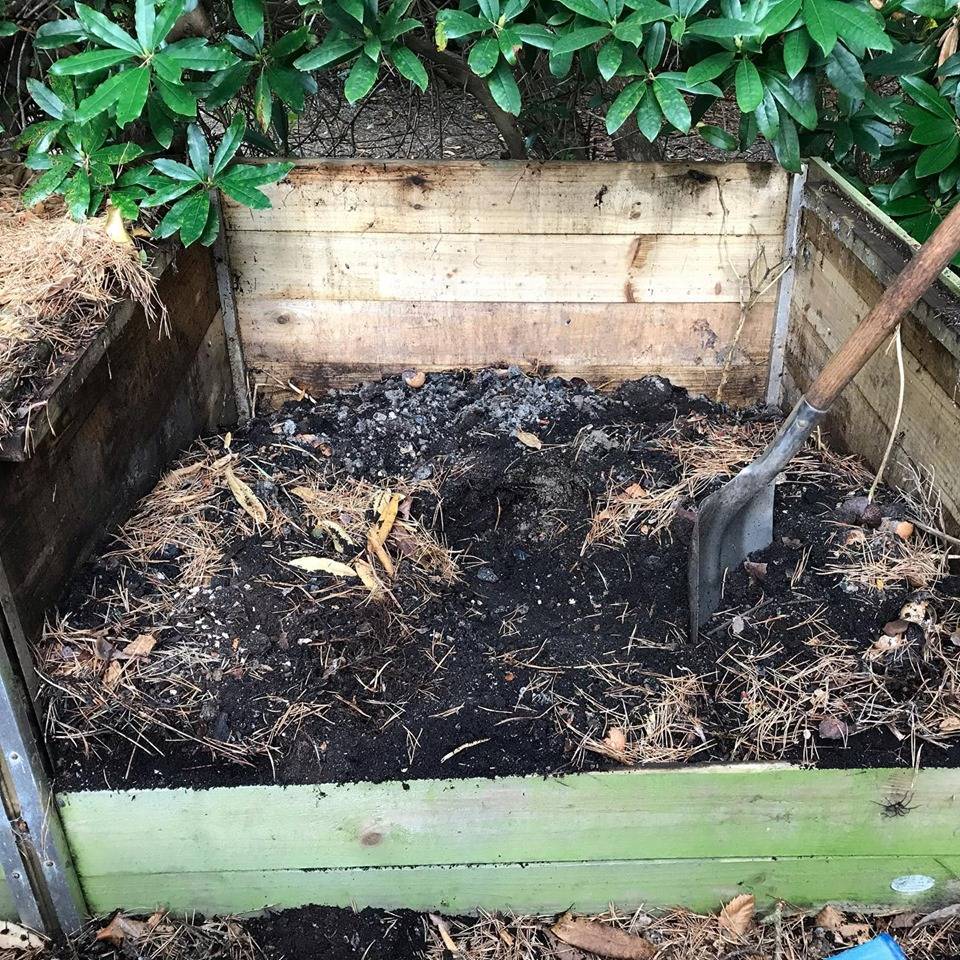
How do I get rid of ants in my compost without contaminating it?
Ants usually mean the heap is too dry and too “brown.” Add greens, lightly water, and mix to raise activity; active, moist heaps are a poor ant habitat. Avoid pesticides inside the bin. In the garden, nematode-based ant deterrents can gently move colonies on without harsh chemicals.
Are “hot composters” worth it?
If you want faster results and better breakdown of tougher materials, yes. Insulated systems maintain higher core temperatures, speeding composting and reducing odours. A reliable option is the best-selling Hotbin composter which is insulated to maintain the compost heat and accelerate composting.
Are compost tumblers any good?
Tumblers make aeration easy - great if you don’t want to fork a heap. They work fastest with chopped material and the right moisture. A compost aerator is a good option to make turning the heap easier.
Can I compost in winter?
Yes. Decomposition slows in cold weather, but you can keep feeding the bin. Insulated compost bins retain heat; add browns when adding kitchen scraps to avoid wet, compacted layers.
Do I need worms for composting?
Worms will find a garden heap naturally. For kitchen-focused systems, wormeries (vermicomposting) are ideal and produce nutrient-rich worm tea.
Can I compost compostable packaging and tea bags?
Only if it’s home-compost certified and plastic-free. Some tea bags contain plastic - choose plastic-free brands or tear them open and compost the leaves.
How do I keep rats out of the compost?
Avoid cooked food/meat/dairy. Keep the bin tidy, bury fresh food waste in the heap, and use rodent-proof bases or mesh where needed.
What does finished compost look and smell like?
Dark, crumbly and earthy-smelling with no recognisable food or garden waste. Sieve if you like; return any larger bits to the next batch.
How do I use my compost?
Mulch borders (2–5 cm), mix into planting holes, top-dress pots, or blend with topsoil for raised beds. Avoid using very fresh compost for seed sowing; sieve and mix with a fine seed compost.
_4113.png)






